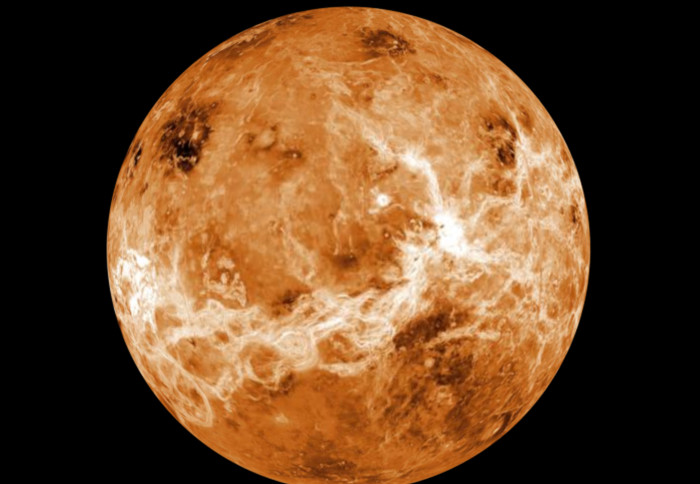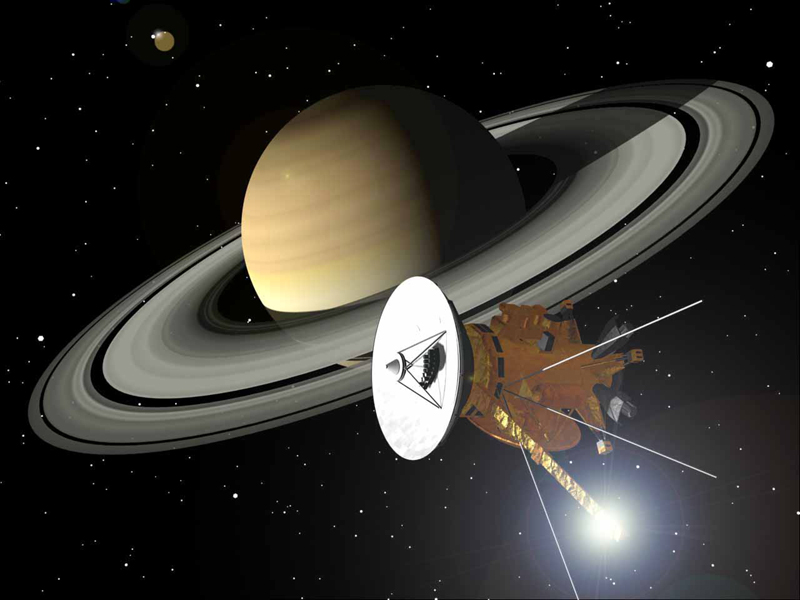Edge of the Sky – book review

Robert Trotta lectures in astrophysics at Imperial College London. He's also a science communicator who likes to share his knowledge with the public. So he set himself the task of writing about the Universe using only words from a list of the 1000 most common English words. The list doesn't even include the word Universe, so it was a tricky business. How did he do?
Enjoyable
I found The Edge of the Sky a charming little book – the main text is only about seventy pages – and it was fun to read. The 'Universe' is called the All-There-Is, and the book's subtitle is All You Need to Know About the All-There-Is.
The Edge of the Sky deals with advanced concepts in cosmology, the study of the origin and evolution of the Universe. It doesn't do this as a textbook, but rather as a story. This may put some readers off, but those who are allergic to textbooks may prefer it. The language is sometimes poetic, sometimes amusing, and often echoes the cadences of English renderings of creation tales.
Some of the language is questionable, but the author's treatment of 'dark matter' and 'dark energy' is superb. Dark and matter are on the word list, but not energy, so he names dark energy the Big Push. A few textbook facts show how appropriate this is.
I think Big Push is more expressive than dark energy!
Up-Goer Five
The inspiration for Trotta's book was “XKCD” cartoonist Randall Munroe's Up-Goer Five. Up-Goer Five is NASA's Saturn V rocket which launched men to the Moon. Munroe annotated a drawing of the rocket using only words from a most-used list. There is now an online text editor based on the list, and Trotta has followed the rules for using it, such as including proper names by prefacing them with Mr or Mrs. However it also says that "'technical' words can be 'enclosed' in single quotes if, for example, you need to 'define' them." Trotta hasn't made use of this.
Who is the target audience?
I noticed that a number of scientists praised the book. However the author describes the book as “[introducing] the general reader to the latest discoveries and outstanding mysteries in modern cosmology.” Though perhaps he meant to say that the book “opens up the way for people-who-read to understand the latest found-things and the things we still don't understand in the All-That-Is.”
Jargon?
Is the language helpful for the general reader? To some extent, yes, but I'm not entirely convinced.
People who are knowledgeable in a given field share concepts and vocabulary – jargon, in this case, is their shared vocabulary. However when presenting ideas to outsiders, jargon needs to be avoided or explained. Limiting the vocabulary simplifies the language in some ways. Yet if there are still complex concepts then you have to invent words by making compound words. Fair enough, but this isn't necessarily better than using existing terms, especially if they're ones that the readers would already know.
The list of 1000 most common words doesn't, for example, include 'planet', 'moon' or 'universe'. Would you think of these words as jargon? I'd say the general reader would understand them. They aren't among the most commonly used words, because we don't need them to get by in day-to-day communication.
Some of the made-up words don't make sense. Crazy star is a confusing substitute for planet, since planets aren't stars and they aren't crazy. Trotta has also renamed the planets, though Up-Goer Five would allow their correct names. But which is easier to understand – He-Who-Talks-for-the-Gods or 'Mercury'?
Earth is Home World. Isn't it a planet? Shouldn't it be Home Crazy Star? Or if Earth is Home World, why aren't the other planets other worlds? A dwarf star could be a small other world, though Trotta would have to give up his little joke of calling dwarf planets minute crazy stars. The 60-second minute is common, but minute (my.NUTE) meaning tiny? No.
And if you're not British, what do you make of this? Who are the people “who wear horse hair on their head and try to trip up other people for a living”? Hint: “They explain how things have really gone, say, if someone has killed another person, and have to make sure they are believed.” (They're barristers, lawyers who still wear horsehair wigs in court.)
Recommended?
It's a quirky little book and it might be just right for someone you know. Since I wasn't reading it as a general reader, I had a look at the Amazon and Goodreads reader ratings. Overall it got 4/5 stars out of quite a number of reviews and ratings. Someone asked me if it were for learners or children. I'd say no to both – too complicated for second language learners and too sophisticated for most children.
Roberto Trotta, The Edge of the Sky – All You Need to Know About the All-There-Is, Basic Books, 2014
Note: The publishers kindly supplied a copy of this book for my review.
Enjoyable
I found The Edge of the Sky a charming little book – the main text is only about seventy pages – and it was fun to read. The 'Universe' is called the All-There-Is, and the book's subtitle is All You Need to Know About the All-There-Is.
The Edge of the Sky deals with advanced concepts in cosmology, the study of the origin and evolution of the Universe. It doesn't do this as a textbook, but rather as a story. This may put some readers off, but those who are allergic to textbooks may prefer it. The language is sometimes poetic, sometimes amusing, and often echoes the cadences of English renderings of creation tales.
Some of the language is questionable, but the author's treatment of 'dark matter' and 'dark energy' is superb. Dark and matter are on the word list, but not energy, so he names dark energy the Big Push. A few textbook facts show how appropriate this is.
- The Universe consists of – at most – 5% of the stuff we can see.
- About 25% of it is dark matter – we don't know what that is and can't see it, but can see its effects.
- The other 70% is dark energy – a complete mystery, but it's speeding up the expansion of the Universe.
I think Big Push is more expressive than dark energy!
Up-Goer Five
The inspiration for Trotta's book was “XKCD” cartoonist Randall Munroe's Up-Goer Five. Up-Goer Five is NASA's Saturn V rocket which launched men to the Moon. Munroe annotated a drawing of the rocket using only words from a most-used list. There is now an online text editor based on the list, and Trotta has followed the rules for using it, such as including proper names by prefacing them with Mr or Mrs. However it also says that "'technical' words can be 'enclosed' in single quotes if, for example, you need to 'define' them." Trotta hasn't made use of this.
Who is the target audience?
I noticed that a number of scientists praised the book. However the author describes the book as “[introducing] the general reader to the latest discoveries and outstanding mysteries in modern cosmology.” Though perhaps he meant to say that the book “opens up the way for people-who-read to understand the latest found-things and the things we still don't understand in the All-That-Is.”
Jargon?
Is the language helpful for the general reader? To some extent, yes, but I'm not entirely convinced.
People who are knowledgeable in a given field share concepts and vocabulary – jargon, in this case, is their shared vocabulary. However when presenting ideas to outsiders, jargon needs to be avoided or explained. Limiting the vocabulary simplifies the language in some ways. Yet if there are still complex concepts then you have to invent words by making compound words. Fair enough, but this isn't necessarily better than using existing terms, especially if they're ones that the readers would already know.
The list of 1000 most common words doesn't, for example, include 'planet', 'moon' or 'universe'. Would you think of these words as jargon? I'd say the general reader would understand them. They aren't among the most commonly used words, because we don't need them to get by in day-to-day communication.
Some of the made-up words don't make sense. Crazy star is a confusing substitute for planet, since planets aren't stars and they aren't crazy. Trotta has also renamed the planets, though Up-Goer Five would allow their correct names. But which is easier to understand – He-Who-Talks-for-the-Gods or 'Mercury'?
Earth is Home World. Isn't it a planet? Shouldn't it be Home Crazy Star? Or if Earth is Home World, why aren't the other planets other worlds? A dwarf star could be a small other world, though Trotta would have to give up his little joke of calling dwarf planets minute crazy stars. The 60-second minute is common, but minute (my.NUTE) meaning tiny? No.
And if you're not British, what do you make of this? Who are the people “who wear horse hair on their head and try to trip up other people for a living”? Hint: “They explain how things have really gone, say, if someone has killed another person, and have to make sure they are believed.” (They're barristers, lawyers who still wear horsehair wigs in court.)
Recommended?
It's a quirky little book and it might be just right for someone you know. Since I wasn't reading it as a general reader, I had a look at the Amazon and Goodreads reader ratings. Overall it got 4/5 stars out of quite a number of reviews and ratings. Someone asked me if it were for learners or children. I'd say no to both – too complicated for second language learners and too sophisticated for most children.
Roberto Trotta, The Edge of the Sky – All You Need to Know About the All-There-Is, Basic Books, 2014
Note: The publishers kindly supplied a copy of this book for my review.
You Should Also Read:
Big Bang Theory
Dark Universe - film review
Bang! The Complete History of the Universe - book

Related Articles
Editor's Picks Articles
Top Ten Articles
Previous Features
Site Map
Content copyright © 2023 by Mona Evans. All rights reserved.
This content was written by Mona Evans. If you wish to use this content in any manner, you need written permission. Contact Mona Evans for details.







